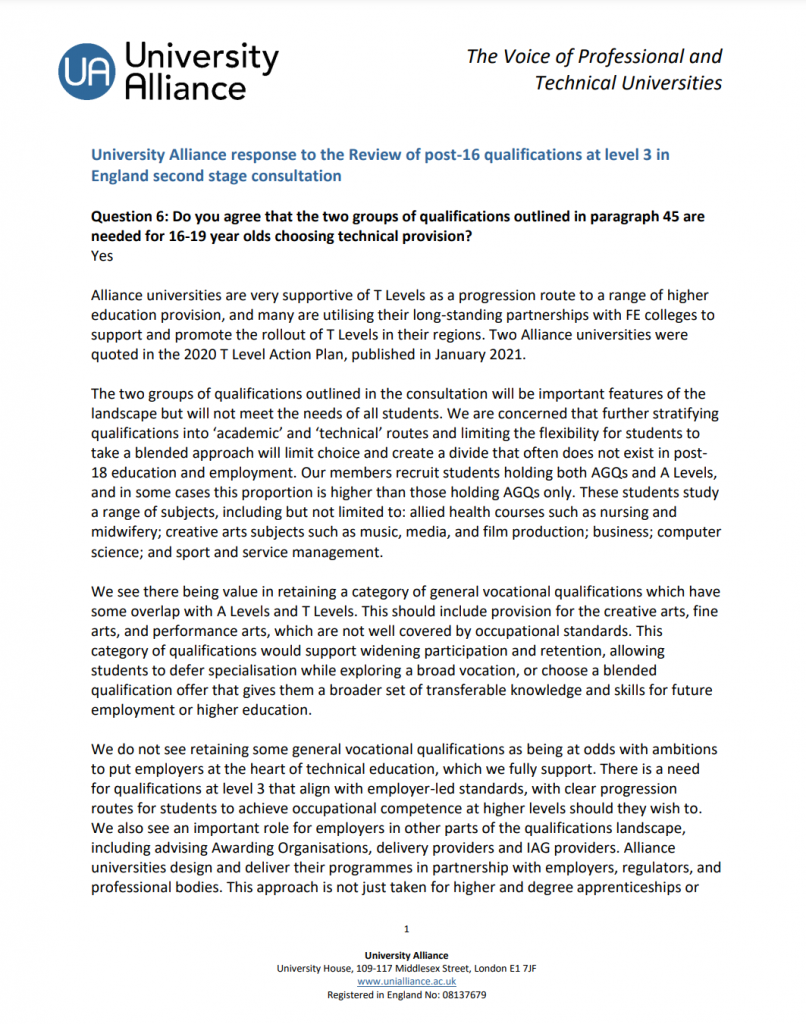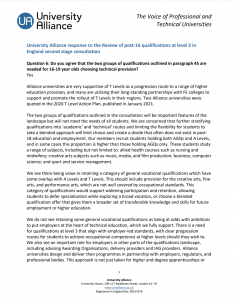University Alliance has responded on behalf of our members to DFE’s Review of post-16 qualifications at level 3.
Our response can be found here, and summarised as:
- Alliance universities are very supportive of T Levels as a progression route to a range of higher
education provision, and many are utilising their long-standing partnerships with FE colleges to
support and promote the rollout of T Levels in their regions. - However the two groups of qualifications outlined in the consultation will be important features of the
landscape but will not meet the needs of all students. We are concerned that further stratifying
qualifications into ‘academic’ and ‘technical’ routes and limiting the flexibility for students to
take a blended approach will limit choice and create a divide that often does not exist in post18 education and employment. - To ensure as many students as possible achieve at level 3, we see there being value in retaining a category of general vocational qualifications across a range of subjects and sizes which have some overlap with A Levels and T Levels, and do not see this as being at odds with ambitions to put employers at the heart of technical education, which we support.
- We urge the government to reconsider the pace of these reforms. The current timetable does not allow for informed decision making based on evidence of T Levels uptake, attainment, progression and widening participation, and the impact on progression and attainment of the new Regulated Qualifications Framework Level 3 qualifications.
- There lack of capacity in some sectors and regions for the required amount of industry experience may prove a limiting factor to growth for T Levels. To help address this, the government should increase capital funding to encourage industry to host students for the placement element of T Levels. This funding is especially important when industry may be struggling to recover from the effects of repeated economic shocks caused by the pandemic, meaning hosting students is not a priority.
- We see value in funding a third category of general vocational qualifications as a permanent feature of the landscape, but irrespective of this, removing alternative qualifications without ensuring sufficient employer capacity is in place for successful delivery of T Levels could have a detrimental effect on the life choices of young people, artificially limiting and restricting access to career pathways.
- Given the regional variance in availability of technical pathways, there should be an assessment of whether these reforms will limit choices and progression opportunities for students (particularly those from disadvantaged groups) based on where they live.
For more information, please contact University Alliance Deputy Head of Policy Ellie Russell on Ellie@unialliance.ac.uk





